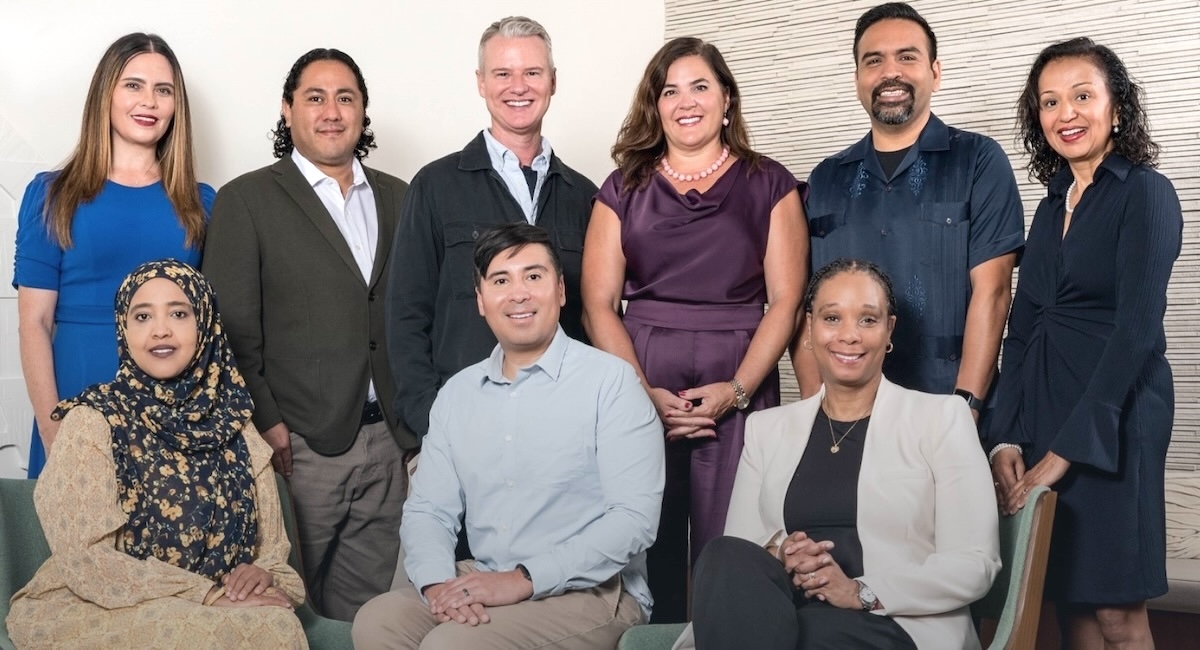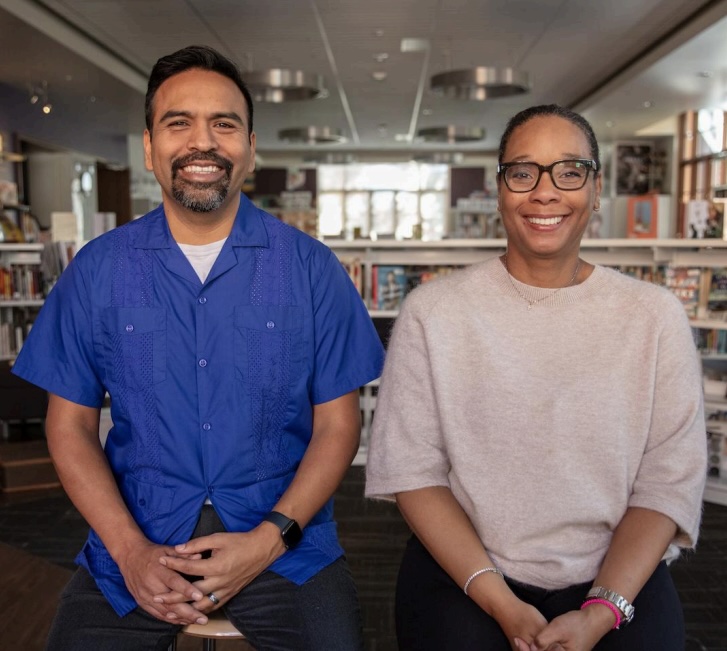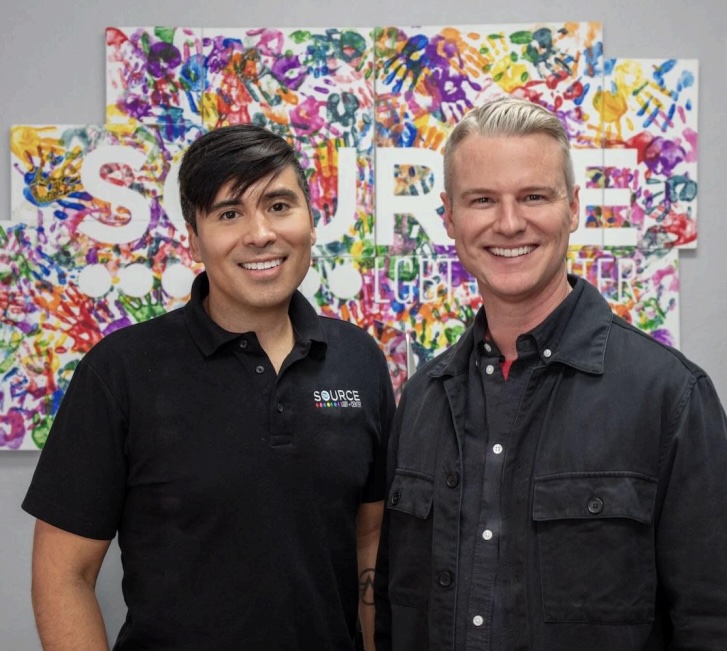For all its beauty, California is beset by challenges, from housing and homelessness to rising inequality, hate, and intolerance, just to name a few. This is why it’s important to know there are individuals out there working to effect positive change.
Several of those individuals and the groups they represent were recently honored with the James Irvine Foundation Leadership Awards for their work.
Tackling the teacher shortage
“In 2022, approximately 500,000 students entered a school building where one or more classrooms lacked a permanent teacher,” noted Elizabeth Baham, provost and chief academic officer with the non-profit Reach University, which is pioneering innovative strategies to address California’s gaping teacher shortage.
Baham, along with Reach University Vice President of Workforce Development and Dean of Admissions Hector Camacho were among those honored by Irvine.
According to the latest data, statewide California is short 10,000 teachers, with some 20% of current teachers set to retire or leave the profession permanently.
“It’s easy to get lost in the numbers and statistics and to not understand what the impact of that shortage is for students in their day-to-day lives,” said Baham, speaking during a March 28 EMS media briefing. Whether it’s larger class sizes, lower quality instruction, or not meeting grade-level standards, the impacts are profound and fall disproportionately on low-income students and students of color.
Launched in 2006, Oakland-based Reach University looks to fill the gap by tapping into a long-overlooked and undervalued resource: the thousands of paraprofessionals – individuals with experience in school settings but who lack professional degrees – who are already stepping into the classroom where and when needed.
“The workforce we’re looking for already exists in the schools but lacks access to higher education and credentialing,” says Camacho, adding, “These people are overwhelmingly more reflective of the students” they serve.
“Teachers go through so much… yet they continue to teach,” said Camacho. “For Irvine to see teaching as worthy of elevating, that feels fantastic.”
Care with dignity in the Central Valley
For Brian Poth and Nick Vargas, the lack of resources available to members of the LGBT+ community seeking care with dignity in rural parts of the state inspires their work with The Source LGBT+ Center in Visalia, located in the San Joaquin Valley.
“Rural areas like ours still lack critical resources for LGBT+ folks,” said Poth, the organization’s executive director. “Folks still have to drive to Los Angeles or San Francisco to experience safe and affirming healthcare.”
The Source describes its mission as seeking to provide supportive spaces for LGBTQ+ people to “learn, grow, belong and thrive.” Its programs include support services for youth, health, and HIV awareness and prevention, as well as food assistance, leadership training, and community building.
“Central California is rural very conservative,” noted Poth. “It is important our center is here for youth and elders to give them a culturally competent experience and a safe space where they are treated with dignity.”
Last year, The Source served 26,000 people across three counties, said Poth, adding that while it once took up to four months for someone diagnosed with HIV to see a physician, that time has dropped to two days thanks to The Source’s advocacy.
Still, growing anti-LGBTQ+ rhetoric and a raft of policies targeting members of the community nationwide is “really scary. Book banning, schools denying rights. We’ve seen all that damaging and dangerous hate come to California,” Poth said.
“My parents were migrant farmworkers who worked on a ranch here,” said Vargas, director of development and strategy for The Source. “In high school, I knew I was gay and felt it wasn’t safe to stay in the area.” After studying at Stanford and a stint in the Bay Area Vargas did ultimately return to Visalia, which he said felt “like it was 10 years behind.”
Today Vargas is set to receive a prescription for the drug PrEP, used to prevent HIV infection, through The Source Clinic. “This will be the first time that a culturally competent clinic in our area is able to offer PrEP to the community. I’m really proud of that.”
Countering hate and creating opportunity
Irvine Foundation Program Officer Cindy Downing, who oversees the awards initiative, celebrated the awardees for “confronting the state’s most critical challenges with innovative and effective solutions… that improve people’s lives and contribute to a better California.”
Irvine is currently accepting nominations for the 2025 Leadership Awards. The deadline to submit nominations is April 26.
Other awardees include Manjusha Kulkarni, executive director of the AAPI Equity Alliance, Michelle Siqueiros, president of the Campaign for College Opportunity, and Blanca Meléndrez and Amina Sheik Mohamed with the UC San Diego ACTRI Center for Community Health.
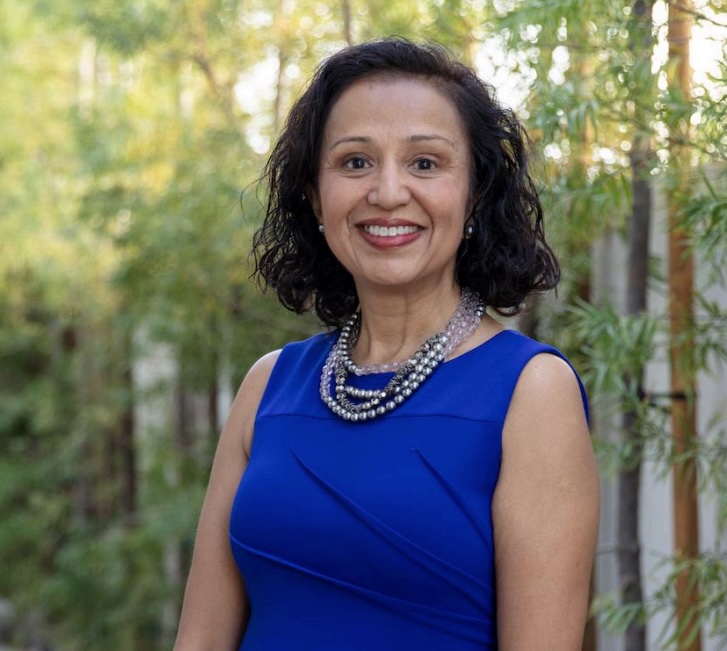
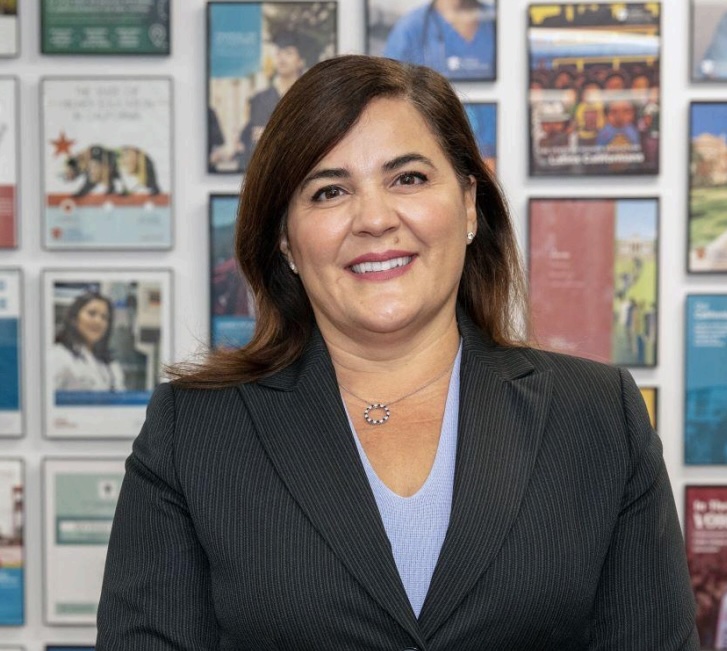
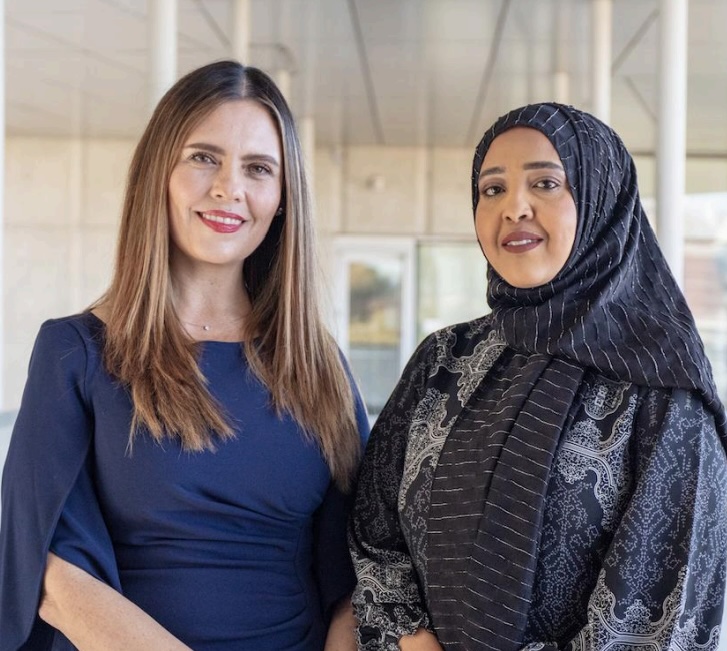
Diego ACTRI Center for Community Health
“What we are seeing now is so damaging to our country in terms of the racist rhetoric that unfortunately has found its way into today’s presidential election,” said Kulkarni, who also co-founded Stop AAPI Hate in 2020 amid rising acts of violence targeting Asian Americans.
Recalling her own parents’ struggle against racism as practicing physicians in Alabama, where they sued the state to ensure physicians of color could secure residency opportunities, “I saw how policy change can happen even by just a few individuals,” she said. “Our Stop the hate work is a key indicator of that.”
Stop AAPI Hate now counts some 42 organizations spanning diverse regions and demographics statewide.
“It was always very clear to me as a young woman that if I wanted different opportunities, I would need a college education to get them,” said Siqueiros, who has spent the past two decades working to make college both more accessible and more affordable, while supporting students on their path to graduation.
The Campaign for College Opportunity’s initiatives include efforts to expand Cal Grants and other aid to more community college students and simplifying the transfer process from community college to the State and UC systems. Siqueiros also pointed to recent legislation reversing a longstanding pattern of placing mostly Black and brown students in remedial English and Math courses at community colleges despite any significant difference in performance.
That policy has been “transformative,” she said, adding that as Californians we “can’t maintain our status as an economic force without educating our students… every talented student deserves to go to college and succeed in our state.”
For Meléndrez and Mohamed, the ACTRI Center’s location in San Diego situates their work at ground zero for the many challenges tied to immigration and the US-Mexico border.
“We are home to a vast population of asylum seekers and refugees and immigrants,” explained Meléndrez, who first came to the US as an undocumented immigrant from her native Mexico, adding her own experience with food insecurity and health struggles in the family are what drives her current work. “We are advocates, we are allies, we are activists for immigrant and refugee health.”
Through a recent nutrition program, the Center helped deliver food to more than 50,000 homes across Southern California.
“It’s in these moments when we see families living with dignity that we feel we are moving the needle towards a more healthy and just California,” said Meléndrez.
“As a Muslim woman and a refugee, to be acknowledged at this level… means a lot,” noted Mohamed, adding that despite ongoing challenges she remains hopeful. “If we don’t have hope, I don’t think we will be here today.”
This resource is supported in whole or in part by funding provided by the State of California, administered by the California State Library in partnership with the California Department of Social Services and the California Commission on Asian and Pacific Islander American Affairs as part of the Stop the Hate program. To report a hate incident or hate crime and get support, go to CA vs Hate.



